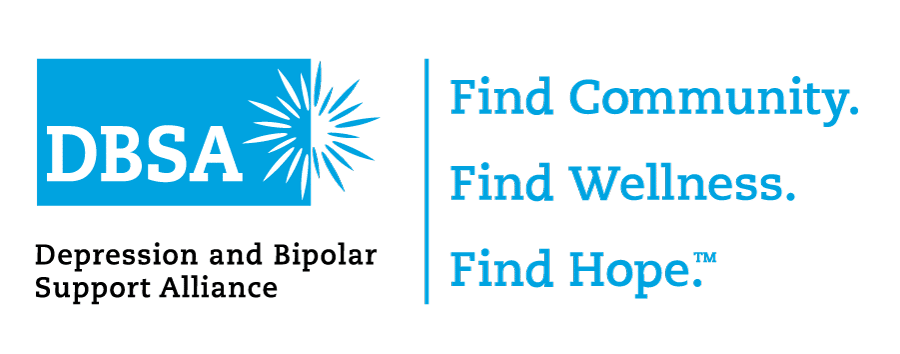Young Adult Council Q&A – Getting treatment for your mental health
DescriptionMost people know what to do when they are feeling physically sick. But what do you do when you are struggling with symptoms of your mental health? DBSA Young Adult Council member Danyelle offers insights about treatment options, resources, and tools you can use to better your mental health.
Thriving with bipolar – Dr.Holly Swartz
DescriptionHolly Swartz, MD, recipient of DBSA Gerald L. Klerman Senior Investigator Award and Young Investigator Award, discusses the importance of patients and clinicians working together to develop a treatment plan that encompasses all aspects of a patient’s life. Dr.Swartz also talks about what it means for patients to thrive with a mood disorder from the perspective of a health care provider.
Thriving with Bipolar
DescriptionIn order to thrive, all aspects of a person must be evaluated including physical health, lifestyle, education, employment status or career goals, relationships, etc. Collaboration between health care providers and patients/clients is key to the future of treatment of mental health conditions if we hope to evolve to a person- or wellness-centered, whole-health approach.
Thriving with Bipolar – Cassie
DescriptionDBSA sat down with Cassie who gave us insightful solutions to the challenges that people living with bipolar may face.
Thriving with Bipolar – John
DescriptionDBSA sat down with John and talked to him about his journey with bipolar and how he incorporates other aspects of his life to ensure that he thrives with this mental health condition.
Thriving with Bipolar – Steve
DescriptionSteve talks to DBSA about the steps he took to collaborate with clinicians and family members in order to thrive with bipolar.
DBSA would like to thank Allergan for supporting the Thriving with Bipolar Campaign.
Amy – DBSA Support Group Participant
DescriptionAmy has found DBSA Support Groups to be very helpful.
The Value of DBSA Support Groups
DescriptionDBSA support groups provide the kind of sharing and caring that is crucial for a lifetime of wellness. DBSA support groups:
- give you the opportunity to reach out to others and benefit from the experience of those who have been there.
- motivate you to follow your treatment plan.
- help you understand that a mood disorder does not define who you are.
- help you rediscover strengths and humor you may have thought you had lost.
- provide a forum for mutual acceptance, understanding, and self discovery.
Remember, support groups are not a substitute for professional care. DBSA chapters and support groups do not endorse or recommend the use of any specific treatment or medication. For advice about specific treatment or medication, individuals should consult their physicians and/or mental health professionals.
Demystifying Bipolar Disorder
DescriptionDemystifying Bipolar Disorder is a program created by DBSA to help educate individuals about bipolar disorder, separate the myths from the facts, and learn about helpful tools in managing bipolar disorder.
Restoring Intimacy
DescriptionDepression and bipolar disorder pose a challenge not just to our health, but to our closest relationships as well. As partners struggle against the fallout of guilt, confusion, and anger, genuine affection and intimacy often become all but impossible to maintain. This webinar takes a realistic look at the challenges as well as practical ways to make intimate relationships work better under such conditions.
Presenters: Anita Clayton, M.D. and Holly Swartz, M.D.
Presentation: PDF of Restoring Intimacy presentation slides
Handouts:
Health Care Reform: Providing More Access to Quality Mental Health Care
DescriptionAre you getting all the mental health insurance benefits you are entitled to? DBSA presents a webinar that explains many of the advantages of health care reform for individuals living with mood disorders.
Presenter: Allen Doederlein
Treatment Choices: Tools for Success
DescriptionIn Treatment Choices: Tools for Success, the last in DBSA’s 4-part webinar series exploring how individuals can get back in the driver’s seat on their road to wellness, we will provide practical strategies to help adults living with mood disorders gain more personal control over their treatment options. We will also be reviewing some tools that are designed to help you better construct a wellness plan, monitor your progress, and/or help you with specific wellness strategies.
Presenter: Donna Dykstra
Treatment Choices: Options for Bipolar Disorder
DescriptionIn Treatment Choices: Options for Bipolar Disorder, we will address key areas of choice for adults living with bipolar disorder and offer suggestions for working with your clinical team to align your treatment with your wellness goals.
Presenters: Joseph R. Calabrese, M.D. and Ellen Frank, PhD
Treatment Choices: Options for Depression
DescriptionIn Treatment Choices: Options for Depression, we will address key areas of choice for adults living with depression and offer suggestions for working with your clinical team to align your treatment with your wellness goals.
Presenters: Andrew Nierenberg, MD and Evette J. Ludman, PhD
Treatment Choices
DescriptionToo often, individuals living with a mood disorder can feel like their fate and quality of life is in the hands of others—that they have no real choice in finding the best path for treatment, and ultimately, their future. This can be disempowering and frustrating prospect that limits individuals’ ability to achieve wellness goals that are most important to them.
Understanding Your Options
This first webinar provides a broad overview of several areas where you can exercise choice in finding a treatment plan that work best for you and how to work with your clinical team to ensure your treatment plan reflects your choices.
Presentation: PDF of Treatment Choices Part I Understanding Your Options slides
Presenter: Greg Simon, MD, MPH
Understanding Agitation
DescriptionEveryone feels antsy, fidgety, or restless from time to time. But some people develop a more severe form of uneasiness called agitation. They may pace, wring their hands, or feel that they can’t sit still or focus. People living with mood disorders may be more disposed to experiencing agitation. Recognizing the signs of agitation and knowing what to do when they appear can be helpful to people with mood disorders and their loved ones.
Presenters: Scott Zeller, MD and Tom Lane, CRPS
Unlocking & Opening Doors to Treatment
DescriptionDid you know your health insurance plan is required to offer the same level of benefits for mental health as it does for physical health? Understanding your rights is crucial to maximizing the mental health benefits available to you. This 35-minute webinar will inform you of your rights and tell you how to file an appeal with the insurance company if you have been inappropriately denied coverage.



